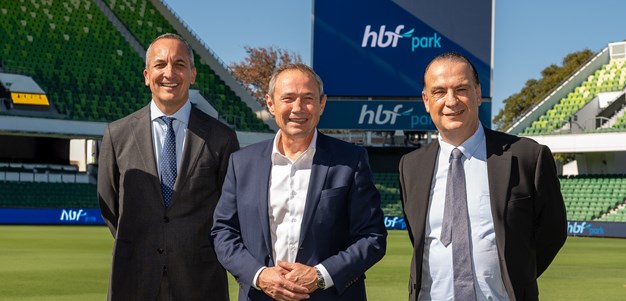The National Rugby League Match Review and Judiciary procedures have been enhanced following an off-season review.
The following changes, approved by the Australian Rugby League Commission (ARLC) and presented to a meeting of club Chief Executive Officers in Perth today, will apply to the 2020 NRL Telstra Premiership:
Streamlined guidelines
The NRL has approved the Match Review Committee (MRC) using new and improved guidelines to assign gradings to players for offences.
The new guidelines will see the MRC undertake an assessment of three key indicators when they decide on gradings; Force (Low, Medium or High), Conduct (Careless, Reckless or Intentional), and Risk of Injury (Low, Medium or High), while reducing the focus on comparable incidents. They will also consider any relevant mitigating or aggravating factors in arriving at their grading of charges.
“The guidelines aim to provide greater clarity to clubs and fans regarding the factors that may influence the grading of an incident,” NRL Head of Football Elite Competitions Graham Annesley said.
“In the past there has been a reliance on previous offences. The new guidelines will give the MRC members more licence to focus on the offence in front of them. Clubs will now have much more specific information available to them so they can decide whether to accept or defend charges.”
New panel members
Former Premiership-player Michael Robertson has been appointed as the new MRC Coordinator, replacing Michael Buettner. Michael Hodgson has also been retained on the panel.
Additionally, fellow former players Luke Patten and Anthony Quinn have been appointed to the MRC, replacing Buettner and Stuart Raper.
“Both Luke and Anthony come with experience as players, but also have continued to work in sport since they retired,” Mr Annesley said.
“Michael Robertson has been an extremely valued member of the MRC and deserves the opportunity to lead the panel.”
Demerit points changes
The demerit points for Grade Two and Three Careless High Tackle will be increased to 200 points and 300 points respectively (from 150 points and 200 points).
Additionally, the demerit points for Reckless High Tackle offences will be increased to 400 points (Grade One), 500 points (Grade Two) and 600 points (Grade Three).
“It became clear that the previous penalties for mid to high range high tackles was not a strong enough deterrent for the type of offence,” Mr Annesley said.
“A stronger message needs to be sent and it will be.”
Judiciary comparables
The number of comparable incidents which can be used during Judiciary hearings has been reduced from three to one. The period of time from which comparable incidents can be used has also been reduced from two years to one year (preceding the date of the alleged offence).
“Judiciary hearings became overly complicated and confusing in some cases as a result of the number of comparables allowed,” Mr Annesley said.
“By reducing the number of comparables and their shelf life, there will be more focus on the offence at the centre of the charge.”
Judiciary live streaming
The NRL is also considering the feasibility of live streaming some NRL Judiciary hearings, in order to increase transparency and education around the system.
“We asked our supporters through an online survey if they believed they would benefit from watching Judiciary hearings and the vast majority felt they would,” Mr Annesley said.
“If we can address the technical issues of streaming hearings without interfering with the judicial process, this can only provide fans with a greater understanding of Judiciary hearing decisions.”
Fines in finals matches
Players will qualify for one additional monetary fine – rather than demerit points - for minor Grade One offences including tripping, careless high tackles, contrary conduct and detrimental conduct for players involved in the NRL Finals Series.
“Nobody wants to see players miss big games for relatively minor offences,” Mr Annesley said.
“Even if players have exhausted their monetary sanctions by Round 25, all players involved in the Finals Series will receive an additional monetary fine they can apply for.”
Previously, a monetary fine could not be imposed where a player has been previously convicted of an offence on two or more occasions during the season (including finals).
Demerit point reduction for dismissed players scrapped
The rule which gives players a one demerit point reduction for every minute of the game they miss after being sent off in a game will be removed.
“While the aim of this rule was to allow players some reduction in sanction for time already served, ultimately it resulted in a perception that they were being provided with compensation for offences that were more serious in nature,” Mr Annesley said. “Effectively, it was undermining the seriousness of the offence.
“It was clear that the rule had passed its use-by date.”
All changes were approved by the ARL Commission last week, for implementation in the 2020 NRL Telstra Premiership.
The changes follow a review of the Judiciary and Match Review procedures undertaken by the NRL’s Elite Competitions department.
“These changes will ensure greater consistency and increased transparency – while also keeping the necessary level of deterrence for foul play,” Mr Annesley said.



